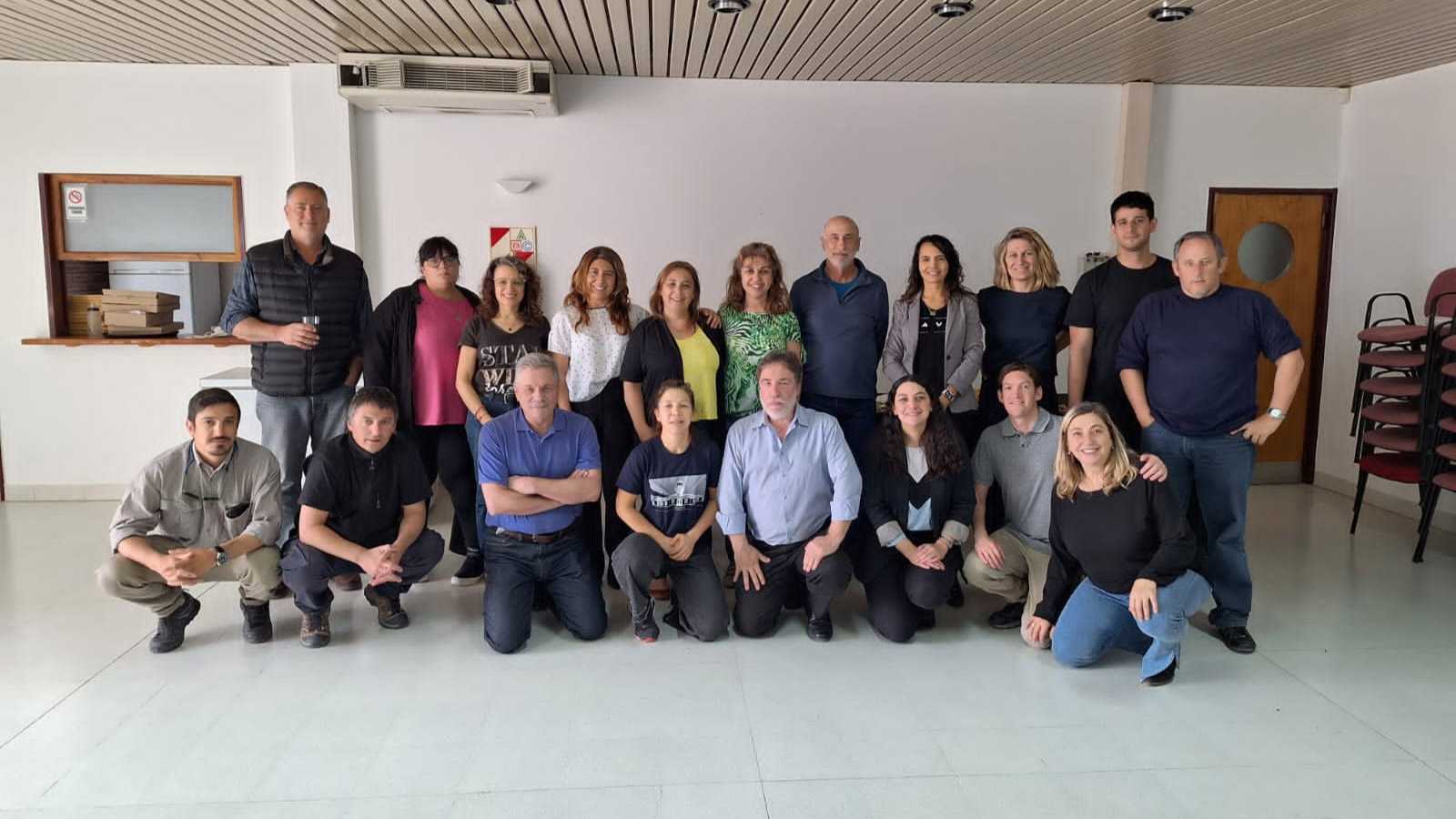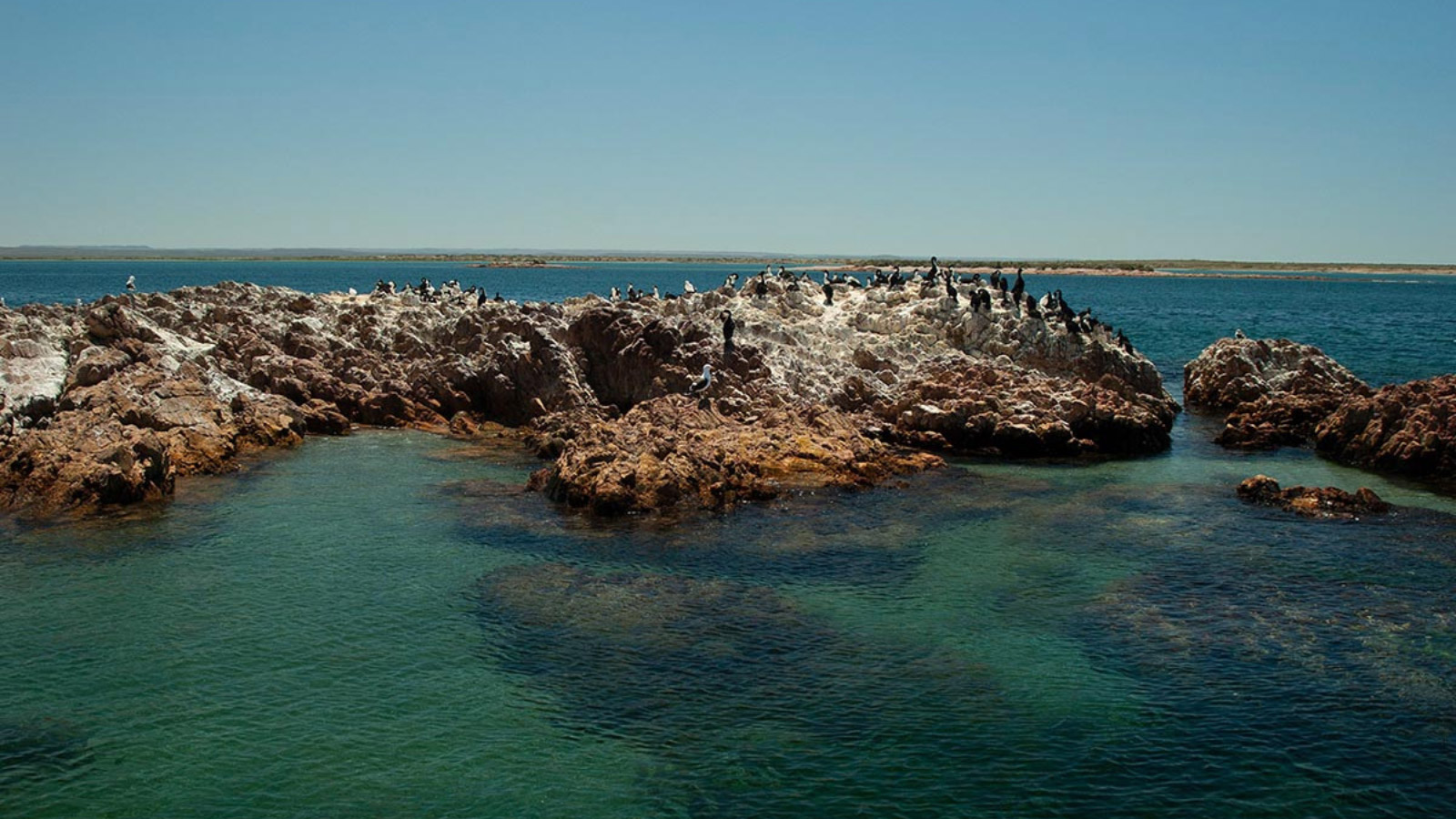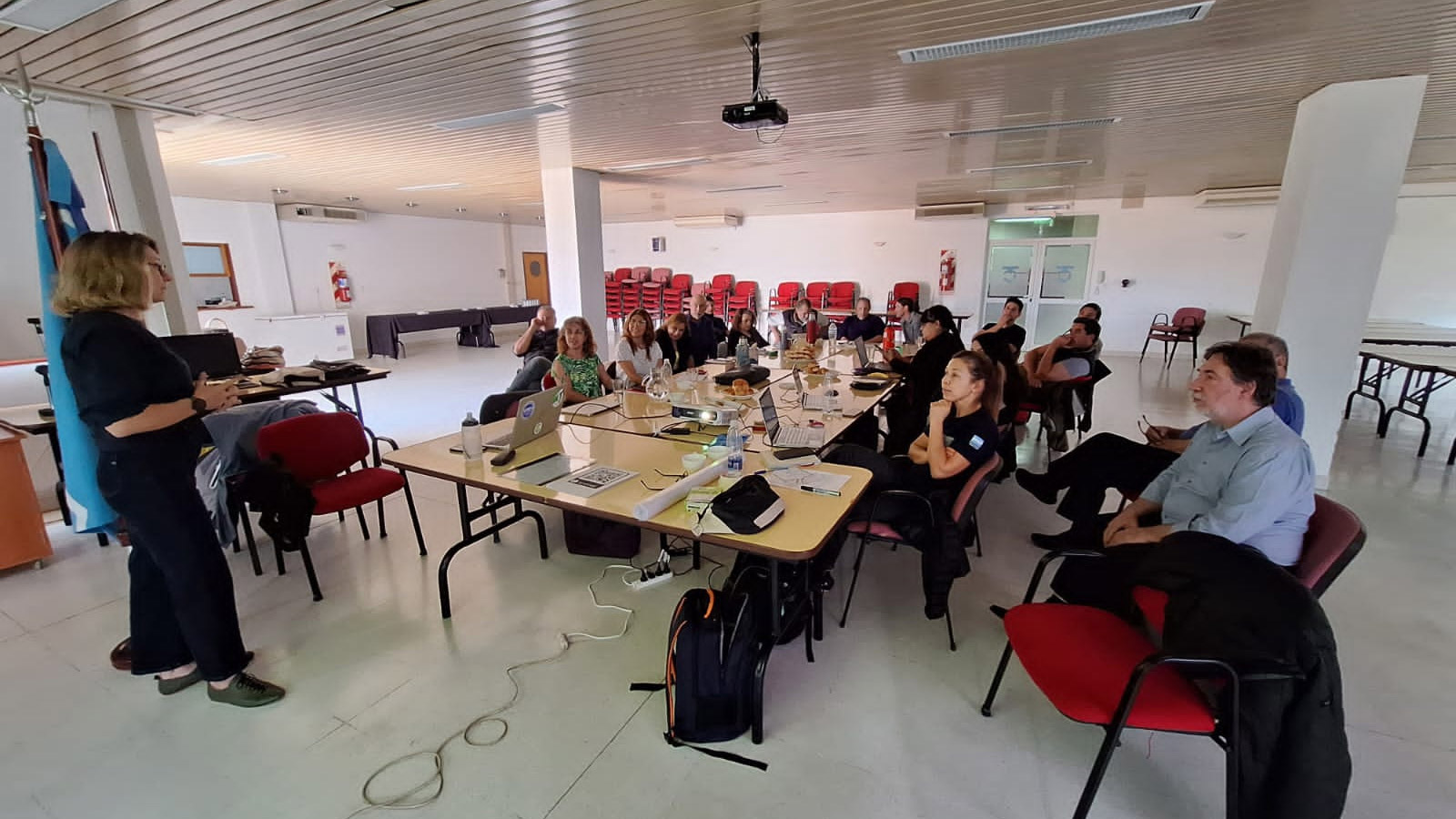
Biosphere Reserves (BR) are spaces that aim to harmonize economic development strategies at the local level with the preservation of nature. Currently, Argentina has designated 15 biosphere reserves, including Península Valdés and Patagonia Azul, in the province of Chubut, created in 2014 and 2015, respectively.
A decade after their creation, an evaluation of the management status of Península Valdés BR will be carried out in 2024, while in 2025 the review of Patagonia Azul BR will take place. These instances will consist of a comprehensive analysis of the progress achieved in the implementation of measures aimed at its effective management.
In order to carry out these evaluations in a comprehensive manner, the Forum for the Conservation of the Patagonian Sea and Areas of Influence, within the framework of the “MaRes Project to strengthen the resilience of the Coastal and Marine Areas of Argentina”, which is supported by the European Union, together with the Undersecretariat of Conservation and Protected Areas, belonging to the Ministry of Tourism and Natural Protected Areas (MTyAP) of the Government of the Province of Chubut, held a workshop with the actors involved in the management of these sites.
The encounter was held on November 17 in the meeting room of the Court of Auditors in Rawson and was attended by authorities of the Ministry of Environment and Sustainable Development of the Nation (MAyDS) and Graciela Pien, as representative of the National Committee of the MaB Program, as well as the Directorate of Management and Public Use, the Directorate of Planning, the Directorate of Information Management, the General Coordination of Wildlife Rangers of Chubut, the Directorate of Wildlife and Flora of the Ministry of Environment and the National Parks Administration (APN), through the Southern Patagonia Interjurisdictional Coastal Marine Park. The objective of the meeting was to design a governance instrument for the management of the Península Valdés and Patagonia Azul Biosphere Reserves.
The facilitation was in charge of Fundación Vida Silvestre Argentina, Global Penguin Society and Fundación Cambio Democrático within the framework of the Monitoring, Governance and Participation Component of the MaRes Project.

Biosphere Reserves, harmonizing human development and nature protection
Proposed in the 1970s by the United Nations Educational, Scientific and Cultural Organization (UNESCO), and within the framework of the Man and the Biosphere (MaB) Program, Biosphere Reserves emerged as a response to increasing environmental degradation.
Designated with this conservation category, these sites seek to safeguard representative segments of terrestrial and marine ecosystems, while fostering economic development in harmony with local cultures and traditions. These reserves not only reflect opportunities for recreation, education, and inspiration, but also stand as benchmarks for the coexistence of human development and environmental protection.
The Península Valdés Biosphere Reserve covers an area of 1,954,869.30 hectares, including the Península Valdés, Punta Loma and Punta León Natural Protected Areas (NPAs). The Patagonia Azul Biosphere Reserve covers an area of 3.1 million hectares, with 58% of its area made up of marine environments, including all of the Punta Tombo NPAs, the Southern Patagonia Interjurisdictional Coastal Marine Park (PIMCPA) and part of the Rocas Coloradas NPA. This coastal region is home to the richest biological diversity of the entire Argentine coast, being crucial for the reproduction, breeding, and migration of different species of birds and mammals. It is worth mentioning the presence of the most extensive colony of Magellanic penguins in the world, contributing to almost 40% of the world total population of this marine species.
At the global level, the designation of biosphere reserves rests with the General Director of UNESCO. At the national level, the direction of the MaB Program follows the agenda established by its main governing body, the MaB National Committee, which belongs to the National Directorate of Planning and Environmental Land Management of the Ministry of Environment and Sustainable Development.
Ten years after their designation, the Biosphere Reserves are undergoing a review process that includes an evaluation of zoning, governance, planning and functions. For this review to be effective and comprehensive, it is crucial to implement a governance instrument that ensures the participation and coordination of the wide variety of stakeholders involved.
In this context, the meeting of provincial authorities, representatives of the MaB Program and the National Parks Administration, in order to begin the review process of the Patagonia Azul and Península Valdés Biosphere Reserves, represents a fundamental step towards a successful evaluation process.
In this regard, Germán Palé, coordinator of the Governance Subcomponent of the MaRes Project, emphasizes: “This meeting, in which authorities related to the management of these territories participated, and with the contribution of Graciela Pien’s presentation, allowed us to determine the next steps to be considered in order to advance in the review stipulated by the MaB Program every 10 years. It is undoubtedly an opportunity to advance in the implementation of a governance system that brings to the discussion both public and private actors with interests in these extensive continental and marine territories”.
Joining forces for effective management of Biosphere Reserves
The meeting began with a presentation of the MaB Program, its background and purpose, advancing on the category of Biosphere Reserves and the conditions for their designation. Finally, a tour of the procedure for the periodic review of the status of the Península Valdés and Patagonia Azul Biosphere Reserves was conducted.
The meeting created an environment conducive to the exchange of ideas and reflections on various governance instruments. These not only aim to achieve conservation objectives, but also to promote local development through equitable governance, thus seeking to achieve a harmonious balance between the different actors involved in the process.

As a result of the dialogue, a commitment was made to move forward with the creation of a detailed map of stakeholders, clearly identifying their competencies and designing an efficient articulation mechanism. This strategic step is aimed at a more effective and coordinated management, promoting a collaborative synergy among all stakeholders in the management of Biosphere Reserves.
Conclusions
This first meeting marks the beginning of a collaborative work process that will strengthen ties between stakeholders and guide efforts towards the implementation of a governance instrument for the Península Valdés and Patagonia Azul Biosphere Reserves.
This instrument will not only be a regulatory framework, but also a dynamic tool that will drive local development initiatives aligned with the conservation objectives established for the Natural Protected Areas (NPAs) within these Biosphere Reserves. Collaboration between authorities, experts and representatives of various sectors is essential to consolidate a joint approach to the preservation of these unique ecosystems.
The MaRes Project will continue to provide collaborative assistance to the Undersecretariat of Conservation and Protected Areas in the revision of the 10-year creation form with priority to the Península Valdés BR during 2024, as this is the first of the BRs that needs to complete this procedure.
Contributions and collective work
This activity is possible thanks to the active collaboration of the implementing organizations of the MaRes Project: Aves Argentinas, Global Penguin Society, Fundación Patagonia Natural, Fundación Vida Silvestre Argentina, Fundación Cambio Democrático, WCS Argentina, Fundación Ambiente y Recursos Naturales.


